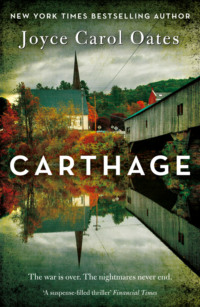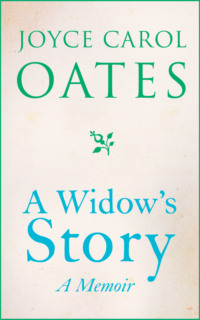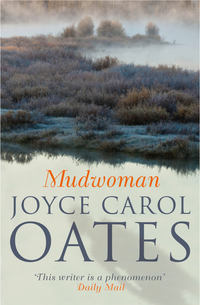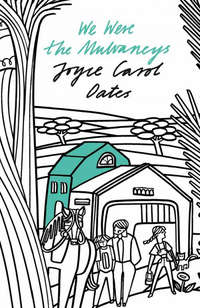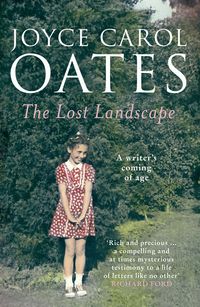
Полная версия
Little Bird of Heaven
We’d exited the eerily humming suspension bridge from downtown Sparta to East Sparta, a no-man’s-land of small factories, gas stations, vacated warehouses, acres of asphalt parking lots creased and cracked and overgrown with gigantic thistles. In litter-strewn fields, in trash-choked gutters you saw lifeless bodies—you saw what appeared to be bodies—trussed and wrapped in twine, humanoid, part-decomposed. You saw, and looked again: only just garbage bags, more trash. East Sparta had lost most of its industries, now East Sparta was filling up with debris.
I asked my father where was he living now?—and my father said, “Me? Living now?” meant to be a joke and so I laughed nervously.
Maybe he wanted me to guess? I guessed Buffalo, Batavia, Port Oriskany, Strykersville…He said, “I’m between habitats, right now. Left some things in storage in Buffalo. Mostly I’m in motion, y’know?—in this car that’s my newest purchase/investment. Like it?”
Though I was listening intently to my father yet I seemed not to know what he was asking me. This car? Do I like—this car?
I had already told my father yes, I liked this car. This was a beautiful car. But he wasn’t living in his car, was he? Was he living in his car?
The backseat was piled with things. Boxes, files, folders. A pair of men’s shoes, what appeared to be clothing: outer garments. Suitcase. Suitcases. Duffel bag. More boxes.
Dead to us. Doesn’t he know it?
Damn dumb ghost wish to hell he’d die.
“Anywhere I am, Krista. In my—y’know—soul. Like in my thoughts, except deeper. That’s what a soul is. In my soul I’m here, in Sparta. Lots of times in my sleep in our house, on the Huron Road. That’s where I wake up, until—I’m awake and I see hey no—nooooo!—that isn’t where I am, after all.”
To this, I had no idea how to reply. I was thinking how I loved my Daddy, and how strange it was that a girl has a Daddy, and a girl loves a Daddy, a girl does not judge a Daddy. I was thinking how I hated my brother Ben, who was free of having to love Daddy.
Ben didn’t love me, either. I was sure.
“It’s my birthplace here,” Daddy said. “My birthright. Nights when I can’t sleep I just shut my eyes, I’m here. I’m home.”
“I wish…”
“Yes? What d’you wish, Puss?”
“…you could come live with us again, Daddy. That’s what I wish.” Daddy laughed, kindly. Or maybe Daddy’s laugh was resigned, wounded.
“…wish you could come back tonight…It isn’t the same without you, Daddy. Anywhere in the house. Anywhere…” I was wiping at my eyes, that ached as if I’d been staring into a blinding light. Maybe one of the guards on the opposing team had thumbed my eye, out of pure meanness.
Pissy little white girl get out of my face! “I miss you, Daddy. So does Ben. He doesn’t say so, but he does.”
This was a lie. Why I said it, impulsively, I don’t know: to make Daddy happy, maybe. A little happier.
“Well, honey. Thank you. I miss you, too. Real bad.” There was a pause, Daddy pondered. “And your brother.”
I said yes, I’d tell him. I’d tell Ben.
It had been one of the shocks of my father’s life, how his son had turned against him. His son, against him.
And maybe he’d loved Ben better than he’d loved me. Or he’d wanted to. Having a son was the card you led with, in Daddy’s circle of men friends.
“…she’s getting along, O.K.? Is she?”
She. We were talking about my mother, were we? All along, since I’d scrambled to climb into the Caddie Seville, the subject had been my mother.
“…to that church? The new one? How’s that turning out?”
I told him it was turning out all right. My mother had joined a new church, my mother had “new friends” or claimed to have. I had not yet met these “new friends” but one of them was named Eve Hurtle or Huddle, the brassy-haired dump truck-shaped woman who owned Second Time ‘Round.
I was uneasy thinking that my father might ask if my mother was “seeing” anyone—any man—and I prepared what I might say. Daddy I don’t know! I don’t think so. Hoping he wouldn’t ask, this would be demeaning to him.
But Daddy didn’t ask. Not that. If Eddy Diehl felt sexual jealousy, sexual rage, he had too much manly pride to ask. Though I could sense how badly he wanted to ask.
“…doesn’t pass on much information about me, I guess? To you and Ben?”
Information? I wasn’t sure what Daddy meant.
“It’s like I’m dead, yes? ‘Dead to me’—that’s what she says?”
It’s over. Finished. That’s what she says.
Carefully I told Daddy I wasn’t sure. I thought maybe he was right, she didn’t pass on much information to Ben and me but then she didn’t confide in us on “personal” things. I didn’t think that she confided in anyone, there was too much shame involved.
Naked female strangled in her bed. Eddy Diehl’s tramp mistress.
On the highway ahead of us was a school bus, carrot-colored, Herkimer Co. School District, red lights flashing as it braked to a stop to let several passengers out. Almost too late, Daddy braked the Caddie. He’d been distracted, cursing and gripping the steering wheel.
“Fuck! God damn school buses.”
Both Daddy and I were wearing seat belts. Daddy was sharp-eyed about seat belts. Daddy had had a friend, an old high school friend, who’d been killed in some awful way like impaled on a steering wheel or his head half sheared off from his shoulders by broken glass, Daddy had always warned Ben and me about belting in.
“She cashes my checks, though. I hope she tells you that.”
Cashes his checks? Was this so? All I knew, or was made to know by my mother and the Bauers, was that my father was derelict in his duty. Neglects his family. Behind on alimony/child support.
“Of course, it’s the least I can do. I don’t begrudge her. I mean, you are my family. What kind of crap ‘salary’ would she get from selling secondhand clothes? Least I can do, ruining that woman’s life…”
Daddy’s voice trailed off, embarrassed. And angry. Clumsily he was lighting up a cigarette, sucking in a deep deep breath like the sweetest purest oxygen he’d been missing.
You could not tell if Daddy’s embarrassment provoked his anger or whether the anger was always there, smoldering like burnt rubber in the rain, and embarrassment screened it fleetingly as a scrim of clouds screens a fierce glaring sun.
“…I never said I wasn’t responsible, for that. Not…not the other, Krissie, but…that. Your mother, and you and Ben…ruining your lives. Jesus! If I had to do it over again…”
This was new, I thought. I was uneasy, hearing such words from my father. Ruining your lives. Ruining that woman’s life. For a moment I hadn’t known which woman my father was speaking of, my mother or—the other woman.
My father had never once spoken of Zoe Kruller to me, or to Ben. I was sure he had not spoken of her to Ben. In his claims of innocence and his protestations that he’d had nothing to do with that woman’s death he had never given a name to Zoe Kruller. And he would not now, I knew.
“…grateful to be alive. And free. That’s the miracle, Krissie—I am not in Attica, serving a life sentence. They say you go crazy in a few months in Attica, the inmates are crazy especially the older ones, the white ones, the guards are crazy—who else’d be a C.O. at Attica? You can’t make it alone, I’d have had to join up with the Aryan Nation—there’s some bikers in Attica, guys I knew from the army, already they’d sent word to me—if I got sent to Attica, I’d be O.K. Imagine, Krissie, my ‘future’ was being prepared for, this was what I had to look forward to, as some kind of good news.” My father laughed, harshly. His laughter turned into a fit of coughing, in disgust he stubbed out the cigarette in an ashtray that opened out of the dashboard beside his knee. “What I am trying to determine, Krissie, is: maybe there is a God, but does God give a shit for justice on earth? For any of us, on earth? I was reading some science discovery, that God is a ‘principle’—some kind of ‘equation’—so there is a God, but what kind of a God is that? A man has got to forge his own justice. As a man has got to forgive his own soul. This justice can’t spring forth too fast, it has to bide its time. So when it’s least expected. Most of humankind, they don’t give any more of a shit than ‘God.’ I guess you can’t blame them, there’s hurricanes, floods, every kind of terrible thing erupting out of the earth, every time you see a paper or turn on TV—how’d you keep up with it? I was a kid, I had to go to Sunday school for a while, till I was eleven when I wouldn’t go any more, I remember how we were told about Jesus performing his miracles, how impressed everyone was, it was ‘miracles’ that impressed them not Jesus as a preacher, anyway—my point is—you are made to think that Jesus could raise the dead, Jesus could save his people, but in actual fact, how could Jesus ‘save’ the teeming multitudes that populate the world now? There’s millions—maybe billions—of people alive, and they are all in peril. As for the God-damned ‘authorities’—the ‘leaders’—they don’t give a damn. It’s all about power. It’s about raking in cash, hiding it in Switzerland. Some banks where they don’t reveal your identity. You don’t pay taxes. The ‘authorities’—they’d sell their own grandmother’s soul, to put an innocent man in prison, or on death row—bottom line is, they want to ‘close the case.’ God-damned hypocrite fuckers…”
I was confused, frightened. It had seemed at first—hadn’t it?—that my father was speaking of something painful with which he’d come to terms, something for which he acknowledged responsibility; he’d sounded remorseful at the outset of his speech but then abruptly the tone shifted, he’d become angry, indignant. His jaw jutted like a fist. His eyes stared straight ahead. Despite warm air from the Caddie’s heater I felt a sensation of chill wash over me.
Can’t trust a drinker. Krista promise me never never get in any vehicle with a drinker you will regret it.
Hadn’t my mother warned me, many times! For surely her mother had warned her, too; and she had not listened.
It seemed that we were headed into the country on route 31, a two-lane state highway north of Sparta. The strip of fast-food restaurants, gas stations and motels where the Days Inn was located was behind us. I thought that, if Daddy had intended to kidnap me, he would not be driving in this direction—would he? In a more genial Daddy-voice he was saying now that for my sixteenth birthday just maybe he’d give me a car—“How’s about a convertible coupe? Just right for sweet sixteen.”
Was Daddy joking? A car, for me? I wondered if Daddy even knew when my birthday was.
From a cloverleaf ramp I could look into the fleeting rears of houses: sheds, animal pens, clotheslines drooping in the rain. A dispirited-looking trailer “village,” a smoldering trash dump that smelled of burning rubber.
We were headed east on route 31, we seemed to have a destination. I had to wonder if Daddy was planning to meet up with someone, there was such urgency in his driving. Those places that Zoe Kruller had frequented were miles behind us: Tip Top Club, Chet’s Keyboard Lounge, Houlihan’s, the Grotto, Swank’s Go-Go, bars at the new Marriott and the Sheraton-Hilton. There was the HiLo Lounge at the Holiday Inn. There was Little Las Vegas at the traffic circle. These were neon-glamorous places by night and by day mostly deserted. In the raw light of day you were made aware of the crude unlit signs sporting semi-nude female figures like cartoon drawings and of overflowing Dumpsters, parking lots littered like acne. After Eddy Diehl had been taken into police custody it would be revealed that he had not been the only “family man” who moved in such circles, as his friends and companions were made to inform upon him and upon one another. No one was arrested for any crime. Yet lives were ruined.
I’d been too young then to know. I was still too young at fifteen to have a grasp of what it might be, that I didn’t yet know.
Here in the country, in a township of Herkimer County known as the Rapids, we were in hilly farmland where by day we’d be seeing herds of Guernsey cows grazing placid and near-motionless in pastures on either side of the road. There were odd-shaped hills called drumlins, exposed shale and limestone like bone broken through skin. Eddy Diehl had relatives who lived in the Rapids but we were not going to visit them, I knew.
“Wish I could see where we were, Daddy. Where we’re going.”
My voice was little-girl wistful, I took care not to sound whiny or reproachful. I guessed we were headed for the County Line Tavern which was one of Eddy Diehl’s places. I wished it was another time and Daddy was taking me for a sight-seeing drive along the Black River and into the countryside in his showy new car as he’d done when Ben and I were young children and sometimes our mother would come with us. This car! I can’t get over this car! What on earth are you going to do with this car! Oh Eddy. Oh my God.
On Sunday drives Daddy would take us out to Uncle Sean’s farm.
Uncle Sean was an uncle of my mother’s, an old man with stark white fluffy hair and skin roughened as the skin of a pineapple. Ben and I were allowed to stroke the velvety noses of horses in their stalls, in the company of our cousin Ty who kept a close watch over us—“Careful! Walk on this side”—and we were allowed to brush the horses’ sides with a wire brush, warm rippling shivery sides, always you are astonished at the size of a horse, the height of a horse, the ceaseless switching of the coarse mane and the coarse stinging tail, the fresh manure underfoot, horseflies hovering in the air, repulsive. Yet I had wanted a horse of my own. I loved to press my face against the horses’ warm sides. My favorite was a mare named Molly-O, one of my uncle’s smaller horses, pebble-gray, with liquidy dark eyes that knew me, I was certain.
I wondered what it meant: here was a horse, but I was a girl.
I wondered if it was just an accident, how we are born: horse, girl.
The way after my father was lost to us in defiance of my mother I would bicycle into Sparta and past the row house where Zoe Kruller was said to have been strangled in her bed and the thought came to me unbidden, illogical If I’d lived here. Anyone who lived here. Death was meant to come here.
You want to blame them, those who’ve been killed. Any woman naked and strangled in her bed you certainly want to blame.
“…shouldn’t have shut me out like that. Your ‘Uncle Sean.’”
“Uncle Sean” was uttered in a tone of contempt, hurt. Daddy seemed to have been following my thoughts.
“All of your mother’s people, that I’d thought liked me. I mean, some of them. The men. Your ‘Uncle Sean’—”
“He isn’t my uncle, Daddy. He’s Mom’s uncle.”
“He’s your great-uncle. That’s what he is.”
I wanted to protest, that wasn’t my fault!
I wanted to protest, Uncle Sean was just an old, ignorant man. Why should Daddy care what he thinks…
“…should know that I won’t give up. A guilty man, he’d give up, he’d move away. By now he’d be vanished from Sparta. But I’m not a guilty man—anyway not guilty of that—and I mean to alter the judgment of bastards like ‘Uncle Sean’ that had no faith in me. You tell your mother, Krista: I am not going to slink away like a kicked dog, I am still fighting this. It’s been—how long—going on five years—a guilty man would’ve given up by now, but not Eddy Diehl.”
Moved by sudden emotion, Daddy reached out another time to grope for my arm, my hand. His fingers were strong, closing around my wrist. I felt a pang of alarm, a moment’s unthinking panic. Always you are astonished. Their size, their height. Their strength. That they could hurt you so easily without meaning to.
7
“WELL, SAY! Thought it was you.”
At Honeystone’s Dairy the person you hoped would wait on you was Zoe Kruller.
Not heavyset Audrey with the sulky dark-purple mouth like a wound, not the steely-eyed grandma Mrs. Honeystone the owner’s wife, or in the height of summer temporary hired-help, high school girls who took little interest in the names of most customers or in recalling that a finicky child might prefer one type of ice-cream cone (lighter, less crunchy) over another (darker, grainier and chewier), and want her chocolate scoop on the bottom and her strawberry on top so that, melting, the strawberry would seep into the chocolate and not the other way around which seemed to the finicky mildly repugnant, unnatural; and on sundaes no nuts, and no maraschino cherries. But Zoe Kruller knew, Zoe Kruller always remembered.
As Zoe remembered names: “Krissie, is it? H’lo there Krissie!”
Zoe was glamorous, not merely pretty. Your eye moved onto Zoe with startled interest as your eye might be drawn to a billboard face posed above the highway, you would never imagine might have the slightest consciousness of you.
If you were a child, that is. A girl-child intensely aware of adult women: their faces, their bodies.
Zoe was an adult woman, a wife and a mother. Yet you would not have guessed that Zoe was much older than the high school girls who worked behind the counter at Honeystone’s. Her face was a girl’s face, just this side of beauty: her eager smile revealed a band of pink gum and her long hungry-looking teeth overlapped just perceptibly in front. Her skin was pale, warmly freckled. Her hair was “strawberry blond”—crimped, flyaway, shoulder-length. Her eyebrows had been carefully plucked and filled in with eyebrow pencil, her pale lashes were inky with mascara. Her nose was a little too long, with a waxy tip, and wide nostrils. Her chin was a little too narrow. Yet her eyes were beautiful, exotic: shades of amber like sherry at the bottom of a glass, or a certain kind of children’s marble, amber-glazed, changing its colors as you turned it in your fingers.
Zoe was a small woman, her figure was what’s called petite. She could not have weighed more than one hundred pounds nor was she more than five feet two. Yet she exuded an air of sexy funny-girl swagger that made her appear taller, like one accustomed to the spotlight. Behind the counter at Honeystone’s Zoe had a way of rising up on her toes when she locked eyes with a customer, smiling that glistening bared-gum smile and a light seemed truly to come into her face.
“Well, say! Thought it was you.”
Most remarkable was Zoe’s throaty purring voice. It was a voice so low and shivery it didn’t seem as if it was issuing from Zoe Kruller’s wide-lipped crimson mouth but from a radio. Here was a distinctive voice amid a clamor of voices of no distinction, that made you stop and stare at Zoe even more than her lit-up face might have warranted. Here is someone special you were made to think.
That red-embroidered ZOE on a tiny pocket above Zoe’s left breast.
‘“Zooh-ey.’ Not ‘Zoo-ey.’ Please!”
In Chautauqua Park on summer nights local musicians and singers performed at the bandstand and Zoe Kruller belonged to the most popular group, that called itself Black River Breakdown. Zoe was the only woman among several men—guitarist, banjo player, fiddler and piano-player.
Except for the Elvis-looking guitarist, a kid in his early twenties with dyed-black hair and cowboy boots with a prominent heel, they were all in their thirties, ardent, excitable, yearning for applause. Their music ranged from country-and-western classics (“Little Maggie,” “Down from Dover,” “I’ll Walk the Line”) to bluegrass (“Little Bird of Heaven,” “Her Little Footprints in the Snow”) and disco (“I Will Survive,” “Saturday Night Fever”).
Especially on stage at the bandstand, sexy-seductive in a spangled dress that left most of her thighs exposed and her strawberry-blond hair frizzed and crimped in a wild halo around her head so it looked like an electric bolt had shot through her, Zoe Kruller did not resemble any other wife/mother in Sparta.
Yet she was Mrs. Kruller, the mother of a boy in Ben’s class at school. This boy was named Aaron and he looked older than Ben by a year or more and had a stiff glaring face nothing like Zoe’s.
“Zoe married young”—this was said of Mrs. Kruller, by our mother and our mother’s friends.
“Zoe married ‘way too young’”—this was said with satisfaction.
And, sometimes: “Zoe married ‘way too young and the wrong man.’”
None of this meant anything to Ben and me. Being taken for a drive out to Honeystone’s which was an actual dairy farm on the outskirts of Sparta, locally famous for its homemade ice cream and desserts, was a Sunday reward for having been good through the week, or one of Daddy’s capricious treats. Anybody interested in a ride? Honeystone’s?
Say I returned to Sparta. Say I looked up my few remaining “friends”—classmates from school—and asked what they remembered most vividly from our childhood, each would say—“Honeystone’s!” Clutching at one another’s hands, eyes misting with tears of sentiment, the sweetest sort of tears, recalling Honeystone’s Dairy as you’d recall a lost paradise.
Recalling even the drive to Honeystone’s, fraught with the happiest sort of anticipation.
Out East Huron Pike Road, past the water treatment tower. Past the railroad yard. Across the Black River Bridge and beyond East Sparta Memorial Park and a short mile or so to the Sparta town limits and there was the sparkling-white stucco building set back from the road in a neatly tended graveled parking lot bounded, in summer, by bright red geraniums in clay pots, and in the autumn by chrysanthemums of all hues; there was the smiling-cow sign thirty feet high, on a pole illuminated at night like a stage set—HONEYSTONE’S DAIRY. Inside Honeystone’s the air was immediately distinctive: milky-cool, marble-cool, like the foyer of the Midland Sparta Bank, except here there was an odor of bakery, so sweet your mouth watered like a baby’s. On the floor of Honeystone’s was what appeared to be actual marble, black-and-white checked, worn but still elegant; there were ornately designed white wrought-iron tables and chairs and there were vinyl booths that resembled leather, sleek and black. Descending from the ceiling were a half-dozen slow-moving fans with blades like the propellers of small planes, both languorous and vaguely threatening. If you were to dream of Honeystone’s interior, the slow-moving fans would take on an ominous note.
A dream of Honeystone’s might be edgy as well because you would not clearly see who’d brought you. For invariably in these dreams you are a young child in the company of an adult and you are essentially helpless.
“What can I do you for, sweetie?”
This was Zoe’s snappy way of greeting. Glamorous Zoe Kruller leaning forward onto the high counter, on her elbows, on her toes, smiling that crimson long-lipped hungry smile, baring her gums. Her eyes so exotic in black mascara, silvery-blue eye shadow and eyeliner, you gaped not knowing how to respond.
And there were other fascinating things about Aaron Kruller’s mother: the way she wore the sleeves of her white Honeystone’s smock pushed up past her elbows so that her slender arms were exposed, covered in dark little moles and freckles like tiny ants! Oh there was something ticklish—shivery—about Zoe Kruller! This giggly throaty-voiced woman about the size of a thirteen-year-old girl who made you want to sink your teeth into ice cream, bite down hard so your teeth ached, and your jaws, and you shuddered at the cold.
Honeystone’s help had to wear white smocks over white cord trousers and both smock and trousers had to be kept spotless. Honeystone’s help had to wear hairnets which made them—except for Zoe Kruller—look silly, dowdy. But on Zoe, her thick strawberry-blond hair just barely contained by the gossamer net, the effect was strangely alluring.



